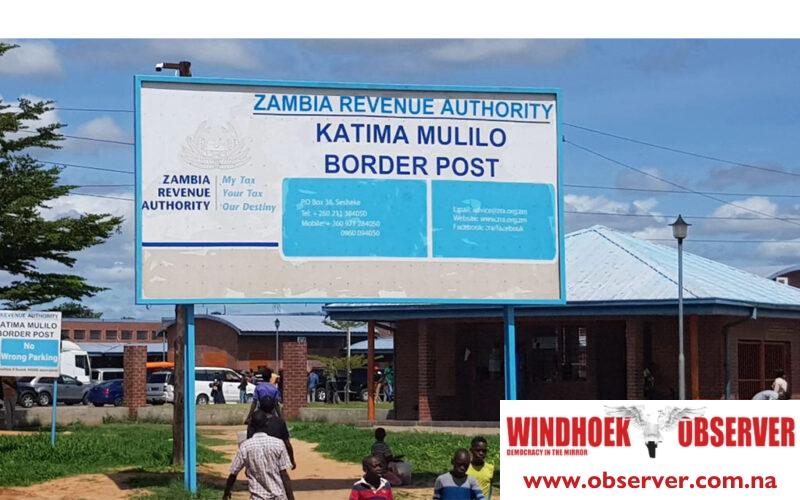Niël Terblanché
Namibia and Zambia are currently in the advanced stages of negotiations to establish a one-stop border post (OSBP) at the Katima Mulilo border post.
This initiative, aimed at enhancing trade and security between the two nations, has been in the works since April 2019 and is now on the brink of finalisation.
Key stakeholders, including the Namibia Revenue Agency, are involved in the negotiations, which started on Tuesday and should conclude on Friday.
The goal is to streamline border procedures, facilitate smoother cross-border trade, and bolster security measures between the neighbouring countries.
The OSBP project is a critical component of efforts to modernise and improve border management between Namibia and Zambia.
It is designed to reduce delays and inefficiencies, thereby promoting economic integration and cooperation in the region.
Namibia received the initial draft of the agreement in 2019, and since then, both countries have been involved in high-level discussions to bring the project to fruition.
During the opening session of the current negotiations, Abner David from the Namibian delegation and Margaret M. Chikuba from the Zambian delegation, who co-chair the Joint Technical Committee, emphasised the importance of the OSBP project.
David pointed to the challenges faced during the initial negotiations and stressed the need for open dialogue and the establishment of post-agreement task teams to ensure the project’s successful implementation.
“The OSBP aligns with practices endorsed by the World Customs Organisation (WCO), which are essential for facilitating smoother and more efficient cross-border trade,” David said.
He called for continued cooperation among delegates to overcome any remaining obstacles and expedite the completion of the agreement.
Chikuba, in her remarks, stressed the OSBP’s crucial role in trade facilitation and the necessity of cooperation between Namibia and Zambia.
She advocated for the formation of efficient task teams to meet the objectives of the project and referenced the African Continental Free Trade Area (AfCFTA), highlighting its relevance to the OSBP initiative.
“The OSBP will not only enhance trade between our countries but also contribute to the broader goals of regional economic integration under the AfCFTA framework,” Chikuba said.
Both parties are optimistic about finalising the agreement, which represents a significant milestone in Namibia-Zambia relations.
The successful implementation of the OSBP is expected to set a precedent for future collaborative efforts in the region, foster greater economic ties and enhance security.
Both parties said that the finalisation of this agreement will mark a new chapter in bilateral relations between Namibia and Zambia, paving the way for increased trade and investment opportunities and contributing to the overall economic growth of the region.




